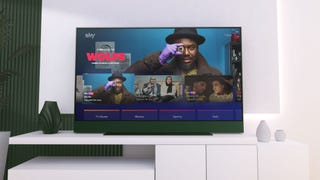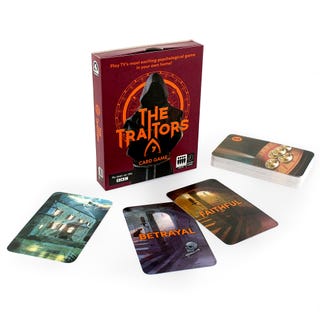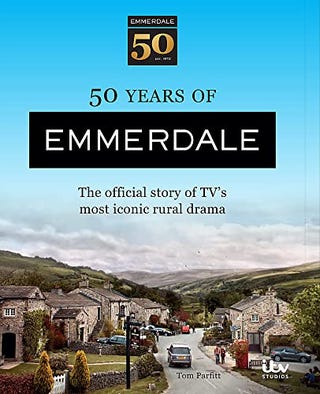Women Talking is a superb feat of filmmaking — from the screenwriting to the minutiae of the production design, to the ensemble acting, to the score. It is a film wound tight with tension, but with breadth of nuance that somehow breathes easy under the incredible weight of its stakes.
Based on the novel by Miriam Towes, Women Talking is inspired by the true story of a Mennonite community in Bolivia where the women were repeatedly drugged and raped by the men in their 'colony'. In the movie, initially led to believe the rapes were either delusions or the influence of Satan, the women finally learn the truth when one of the men is caught in the act.
The women then face a cataclysmic dilemma: do nothing, stay and fight, or leave.
Related: Claire Foy's new movie Women Talking lands 100% rating on Rotten Tomatoes after first reviews
Ahead of the movie's UK debut, Digital Spy exclusively sat down with some of the ensemble cast and writer-director Sarah Polley to talk about the heaviness and humour, and what it takes to keep up punchy pacing in a film that is essentially a conversation.
The movie really feels like a story of innate yearning for freedom and emancipation. How did you chart your journey as an actor through that process?
Jessie Buckley (Mariche): Well, we shot in sequence, which is for me — I don't know how I would have done it if we hadn't. I didn't know where we were, where are we going to go with my character already.
I didn't want to come in with pre-judgement. You know, I was going to work every day with incredible actors and actresses and I could just stand in front of somebody and have my own point of view from this character change in real time.
Claire Foy (Salome): I agree. I think that it was unlike anything I've ever done. [It was] a very easy process to not preempt anything. I always try and do that as a self protection thing, and then I always end up never doing it. But with this it was so easy day to day.
When we got into the swing of it, because we're doing it chronologically, just turning up and being [okay with it being] terrifying and quite scary. Because you were very vulnerable, actually about what was going to happen.
There was something really amazing about it taking you somewhere you weren't in charge of, and where it was going and I hope that's a sort similar thing to what the audience goes through, where it's continually surprising.
Were there moments where you were transported by those feelings, especially for August, who is the observer and lens for the audience?
Ben Whishaw (August): I feel like one of the youngest actresses did get very upset in certain moments, I think because of being there, but also because of what was being discussed. As older people, you get better at having some distance, and maybe you process it privately alone.
I believe we're quite focused and it was about the work. It wasn't about us. Would you say?
Sarah Polley (director): Yeah, I mean, we also had some guardrails in place. We had a therapist on set when we were having the harder slides. And people, crew and cast, would go and talk to her a lot of times.
We knew we could always take a break if anybody got overwhelmed. So I think they created a sense where things weren't getting bottled up. I think we all had days that were harder than others.
But in general, I think there was also so much laughter on. And that was so important for us to find the humour, both in the working environment but also in the film.
There's a real sense of humour in the movie that isn't just the 'laughing instead of crying' device, it's real laughter.
SP: I think ultimately what the film is about is moving forward and making things better and working as a community to figure out what the way forward is. It's this group of people who have very different points of view having to come together and work together. And so in a way for me, the whole premise of the film was helpful and, and it was really important to have laughter and releases.
I think that films for me are never that effective if I leave them so depressed I can't move. The idea with this film always was that it would be a provocation to a conversation, and two ideas of ways forward as opposed to just examining the horrors.
CF: I love the fact that people [think] because it's about sexual abuse that somehow it has to be serious all the time. These women love laughing, somehow have an ability to still love life and humanity. You can't make them like this without the humanity and humour and hope and all those things.
Was there ever a time where the sillies just took over?
JB: All the time!
CF: Remember that thing with Sheila [McCarthy, who plays Greta] where she said...
JB: Oh I think, Sarah had given her a note or something, and then she all she was thinking was 'the mark is coming up. It's coming up, it's coming up' and way before her line had arrived she stood up and just kind of declaimed it!
Related: Claire Foy thinks Hollywood is changing for the better for women
CF: It was great. But it was very clear when there are moments of intensity.
JB: Yeah, we were kind of respectful because we had to go to certain places. We knew that we had to respect that was where that was happened. It happened and nobody ever discussed it. Nobody ever talked. You know, we went back and talked about life and what we were going to eat that night, would we go for a glass of wine.
There was no room to dissect anything. And I think because we respect and are inspired so much by the people we were working with, it was kind of sacred, everything that happened in the hay loft stayed in the hay loft. The silliness and the sadness.
How did you keep the energy of the film punchy throughout?
SP: I knew that film had to have an engine and I knew that it had to come in around under 100 minutes. I knew it wouldn't survive being a longer film. It was a constant process of whittling down the script to its essentials, and then in the editing room being ruthless.
The pace became really important to us to just make sure ... I wanted to experience the way I experienced the novel, which was that I read it fast. I inhaled it. And it went through me like a bullet. So that's what we were aiming for.
Related: How to watch this year's BAFTA and Oscar contenders online at home
BW: It was really interesting because Sarah was always like, 'take your time.' That [working on the movie] could exist in something that wasn't necessarily quite real. We were always given lots of space, time. A safe space to to be.
SP: There's a moment that I remember really well, it was the second huge scene and we were going to run the lines. And you [Ben] said, 'why don't we just run them as fast as possible, just while we're getting it.' And we suddenly found the pace of the scene, which for me as a filmmaker, that wasn't a natural pace, but it opened up for me a world of, 'Oh, well, it actually works at that pace.'
Mariche has a line that distills the film in a way — she says, 'It is not only the men and boys who have been excellent students.' How do you approach a line like that, where you know that there are layers for an audience to take away?
JB: I don't like thinking about those things. I like to get out my [own] way. It was super interesting, because a lot of these things that we were talking about, that each of the women were talking about from different perspectives, were things that I had thought about but never had found a way to articulate — or at least say out loud.
In some ways, everything that everybody says in that film rings true. We could all stand in those different points of view.
I think that was something that I definitely learned because there's so much that I have to unlearn, so that I can try and move forward. We're in relationships with each other and actually, this is about an education that we've all inherited.
Unless we actually start having these conversations — that's when change will happen. And I guess acknowledging those moments of going, 'actually, it's not just the men that have put us in this position, it's also the legacy of stuff that as women we've passed down to each other.' We have so much to unravel within ourselves before we can start unravelling something much bigger.
Women Talking is out in UK cinemas on February 10.




























